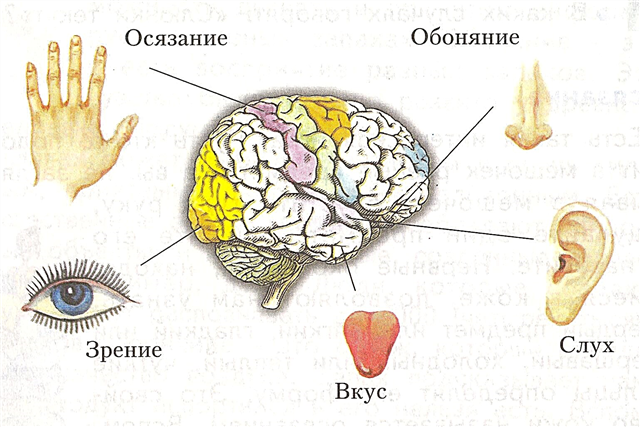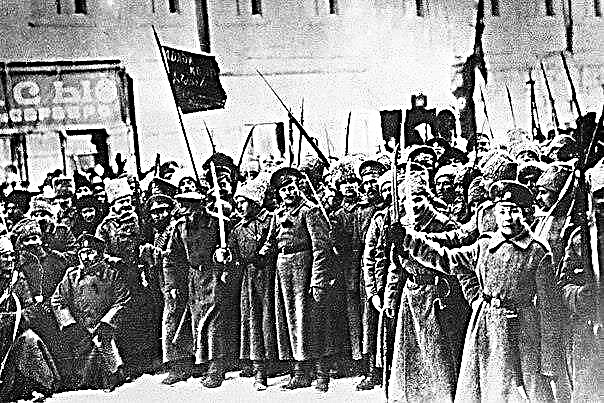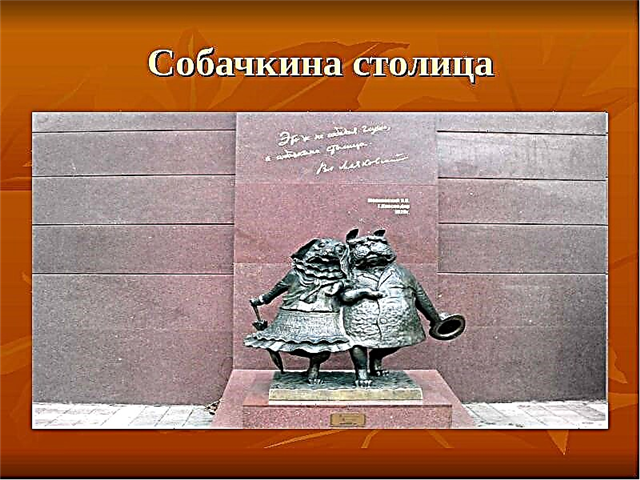"How to Win Friends and Influence People" Is the most famous book by Dale Carnegie, published in 1936 and published in many languages of the world. The book is a collection of practical advice and life stories.
Carnegie uses the experience of his students, friends and acquaintances as examples, supporting his observations with quotes from prominent people.
In less than a year, more than a million copies of the book were sold (and in total, over 5 million copies were sold in the United States alone during the author's lifetime).
By the way, pay attention to "7 Skills of Highly Effective People" - another mega-popular book on self-development.

For ten years, How to Win Friends and Influence People has been on The New York Times bestseller lists, which is still an absolute record.
In this article I will give you a summary of this unique book.
First, we'll look at 3 basic principles of communicating with people, and then 6 rules that, perhaps, will fundamentally change your outlook on relationships.
Of course, to some critics, this book will seem overly Americanized, or appeal to artificial senses. In fact, if you do not look biased, you can benefit from Carnegie's advice, since they are aimed primarily at changing internal views, and not purely external manifestations.
After reading this article, take a look at the review of the second part of Carnegie's book: 9 Ways to Persuade People and Stand Up for Your Point of View.
How to influence people
So, before you is a summary of the book "How to Win Friends and Influence People" by Carnegie.
Do not judge
When communicating with people, first of all, it should be understood that we are dealing with illogical and emotional creatures, driven by pride and vanity.
Blind criticism is a dangerous game that can cause pride to explode in the powder magazine.
Benjamin Franklin (1706-1790) - American politician, diplomat, inventor, writer and encyclopedist, became one of the most influential Americans due to his inner qualities. In his early youth, he was a rather sarcastic and proud man. However, as he climbed to the pinnacle of success, he became more restrained in his judgments about people.
“I am not inclined to speak ill of anyone, and I say only the good things that I know about them,” he wrote.
To truly influence people, you need to master character and develop self-control, learn to understand and forgive.
Instead of condemning, you need to try to understand why the person acted this way and not otherwise. It's infinitely more beneficial and interesting. This engenders mutual understanding, tolerance and generosity.
Abraham Lincoln (1809-1865) - one of the most prominent American presidents and liberator of American slaves, during the civil war faced many difficult situations, the way out of which seemed impossible to find.
When half of the nation angrily condemned the mediocre generals, Lincoln, "without malice towards anyone, and with goodwill towards all," remained calm. He often said:
"Don't judge them, we would have done exactly that under similar circumstances."
Once the enemy was trapped, and Lincoln, realizing that he could end the war with one lightning strike, ordered General Meade to attack the enemy without calling a council of war.
However, he resolutely refused to go on the attack, as a result of which the war dragged on.
According to the recollections of Lincoln's son, Robert, the father was furious. He sat down and wrote a letter to General Meade. What content do you think it was? Let's quote it verbatim:
“My dear general, I do not believe that you are unable to appreciate the full extent of the misfortune of Lee's escape. He was in our power, and we had to force him to an agreement that could end the war. Now the war can drag on indefinitely. If you were hesitant to attack Lee last Monday when there was no risk in it, how can you do it on the other side of the river? It would be pointless to wait for this, and now I do not expect any major success from you. Your golden opportunity has been missed, and I am immensely saddened by this. "
You are probably wondering what General Meade did when he read this letter? Nothing. The fact is that Lincoln never sent him. It was found among Lincoln's papers after his death.
As Dr. Johnson said, "God himself does not judge a man until his days are over."
Why should we judge him?
Notice the dignity of people
There is only one way to convince someone to do something: arrange it so that he wants to do it. There is no other way.
Of course, you can use force to get your way, but this will have extremely undesirable consequences.
Prominent philosopher and educator John Dewey argued that a person's deepest aspiration is "the desire to be significant." This is one of the main differences between humans and animals.
Charles Schwab, who was born into a simple family and later became a billionaire, said:
“The way in which you can develop the best that is inherent in a person is recognition of his value and encouragement. I never criticize anyone, but I always try to give a person an incentive to work. Therefore, I am concerned about finding what is praiseworthy and I have an aversion to looking for mistakes. When I like something, I am sincere in my approval and generous in praise. "
Indeed, we rarely emphasize the dignity of our children, friends, relatives and acquaintances, but everyone has some dignity.
Emerson, one of the most prominent thinkers of the 19th century, once said:
“Every person I meet is superior to me in some area. And this I am ready to learn from him. "
So, learn to notice and emphasize dignity in people. Then you will see how your authority and influence among your environment will increase dramatically.
Think like the other person
When a person goes fishing, he thinks about what the fish loves. That is why he puts on the hook not strawberries and cream, which he himself loves, but a worm.
A similar logic is observed in relationships with people.
There is a sure way to influence another person - is to think like him.

One woman was annoyed with her two sons, who attended a closed college and did not react at all to letters from relatives.
Then their uncle offered a bet for one hundred dollars, saying that he would be able to get an answer from them without even asking for it. Someone accepted his bet, and he wrote a short letter to his nephews. In the end, by the way, he mentioned that he was investing $ 50 each of them.
However, he, of course, did not put money into the envelope.
Answers came immediately. In them, the nephews thanked "dear uncle" for his attention and kindness, but complained that they had not found money with the letter.
In other words, if you want to convince someone to do something, before speaking, shut up and think about it from their point of view.
One of the best pieces of advice in the subtle art of human relationships was given by Henry Ford:
"If there is a secret to success, it is the ability to accept the other person's point of view and see things from his point of view as well as from his own."
How to win friends
So, we've covered three basic principles of relationships. Now let's take a look at 6 rules that will teach you how to win friends and influence people.
Show genuine interest in other people
One telephone company undertook a detailed study of telephone conversations in order to determine the most common word. This word turned out to be the personal pronoun "I".
This is not surprising.
When you look at photographs of yourself with your friends, whose image are you looking at first?
Yes. More than anything else, we are interested in ourselves.
The famous Viennese psychologist Alfred Adler wrote:
“A person who does not show interest in other people experiences the greatest difficulties in life. Losers and bankrupts most often come from among such individuals. "
Dale Carnegie himself wrote down the birthdays of his friends, and then sent them a letter or telegram, which was a huge success. Often he was the only person who remembered the birthday boy.
Nowadays, this is much easier to do: just indicate the desired date in the calendar on your smartphone, and a reminder will work on the due day, after which you will only have to write a congratulatory message.
So, if you want to win people over to you, rule # 1 is: Take a genuine interest in other people.
Smile!
This is perhaps the easiest way to make a good impression. Of course, we are not talking about a plastic, or, as we sometimes say, "American" smile, but about a real smile coming from the depths of the soul; about a smile, which is highly valued on the stock exchange of human feelings.

An ancient Chinese proverb says: "A person without a smile on his face should not open a shop."
Frank Flutcher, in one of his advertising masterpieces, brought us the next great example of Chinese philosophy.
Before the Christmas holiday, when Westerners are buying especially a lot of gifts, he posted the following text on his store:
The price of a smile for Christmas
It costs nothing, but it creates a lot. It enriches those who receive it without impoverishing those who give it.
It lasts for an instant, but the memory of it sometimes remains forever.
There are no rich people who could live without her, and there are no poor people who would not become richer by her grace. She creates happiness in the house, an atmosphere of goodwill in business and serves as a password for friends.
She is the inspiration for the weary, the light of hope for the desperate, the radiance of the sun for the discouraged, and the best natural remedy for grief.
However, it can neither be bought, nor begged, nor borrowed, nor stolen, for it represents a value that will not bring the slightest benefit if it is not given from a pure heart.
And if, in the last moments of Christmas, it happens that when you buy something from our sellers, you find that they are so tired that they cannot give you a smile, can you ask you to leave them one of yours?
No one needs a smile so much as someone who has nothing to give.
So, if you want to win people over, rule # 2 says: smile!
Remember names
You may have never thought about it, but for almost anyone, the sound of his name is the sweetest and most important sound of speech.
At the same time, most people do not remember names for the reason that they simply do not pay enough attention to it. They find excuses for themselves that they are too busy. But they are probably no more busy than President Franklin Roosevelt, who was one of the central figures in world events in the first half of the 20th century. And he found time to memorize names and refer by name even to ordinary workers.
Roosevelt knew that one of the simplest, but at the same time effective and important ways to attract people to his side, is to memorize names and the ability to make a person feel important.
It is known from history that Alexander the Great, Alexander Suvorov and Napoleon Bonaparte knew by sight and by name thousands of their soldiers. And you say that you cannot remember the name of a new acquaintance? It's fair to say that you just didn't have that goal.
Good manners, as Emerson said, require little sacrifice.
So, if you want to win over people, rule # 3 is: memorize names.
Be a good listener
If you want to be a good conversationalist, be a good listener first. And this is quite simple: you just have to hint the interlocutor to tell you about himself.
It should be remembered that the person talking to you is hundreds of times more interested in himself and his desires than in you and your deeds.

We are arranged in such a way that we feel ourselves as the center of the universe, and we evaluate practically everything that happens in the world only by our attitude to ourselves.
This is not at all about fueling a person's egoism or pushing him towards narcissism. It's just that if you internalize the idea that a person loves to talk about himself most of all, you will not only be known as a good conversationalist, but you will also be able to have the corresponding influence.
Think about this before starting a conversation the next time.
So, if you want to win people over, rule # 4 is: Be a good listener.
Conduct the conversation in the circle of interests of your interlocutor
We have already mentioned Franklin Roosevelt, and now we turn to Theodore Roosevelt, who was twice elected President of the United States (by the way, if you are curious, see the entire list of US presidents here.)
His amazing career has developed this way due to the fact that he had an extraordinary impact on people.
Everyone who had a chance to meet with him on various issues was amazed at the wide range and diversity of his knowledge.
Whether he was an avid hunter or stamp collector, a public figure or a diplomat, Roosevelt always knew what to talk about with each of them.
How did he do it? Very simple. On the eve of that day, when Roosevelt was expecting an important visitor, in the evening he sat down to read literature on the issue that should have been of particular interest to the guest.
He knew, as all true leaders know, that the direct way to a man's heart is to talk with him about the subjects closest to his heart.
So, if you want to win people over to you, rule # 5 says: conduct a conversation in the circle of interests of your interlocutor.
Let People Feel Their Significance
There is one overriding law of human behavior. If we follow it, we will never get into trouble, as it will provide you with countless friends. But if we break it, we immediately get into trouble.
This law says: always act in such a way that the other gets the impression of your importance. Professor John Dewey said: "The deepest principle of human nature is the passionate desire to be recognized."
Perhaps the surest way to a person's heart is to let him know that you acknowledge his significance and do it sincerely.
Remember Emerson's words: "Every person I meet is superior to me in some area, and in that area I am ready to learn from him."
That is, if you, as a professor of mathematics, want to win over a simple driver with an incomplete secondary education, you need to focus on his ability to drive a car, his ability to deftly get out of dangerous traffic situations and, in general, solve automotive issues that are inaccessible to you. Moreover, this cannot be false, because in this area he is really a specialist, and, therefore, it will not be difficult to emphasize his significance.
Disraeli once said: "Start talking to the person about him, and he will listen to you for hours.".
So, if you want to win people over to you, rule # 6 is: Let people feel their importance, and do it sincerely.
How to make friends
Well, let's summarize. To win over people, follow the rules collected in Carnegie's book How to Win Friends and Influence People:
- Show a genuine interest in other people;
- Smile;
- Memorize names;
- Be a good listener;
- Lead the conversation in the circle of interests of your interlocutor;
- Let people feel their importance.
In the end, I recommend reading selected quotes about friendship. Surely the thoughts of outstanding people on this topic will be useful and interesting to you.









